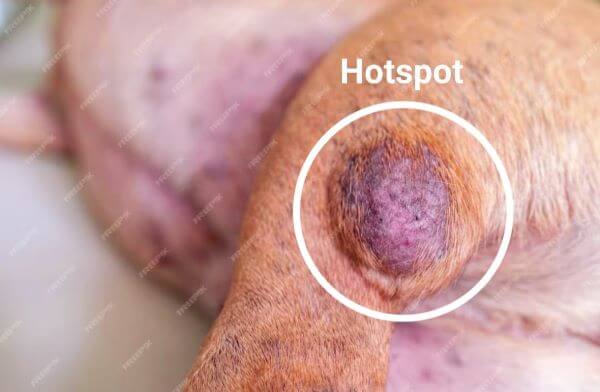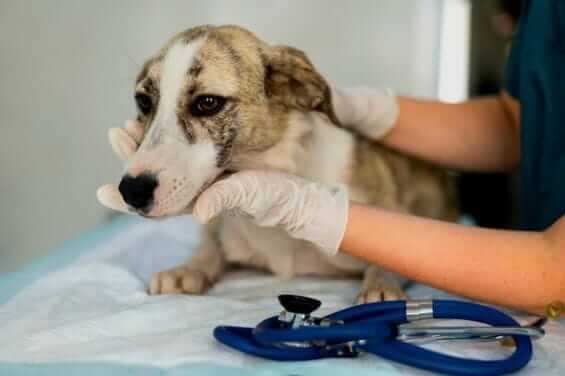What is an Abscessed Teeth?
An abscessed tooth occurs when bacteria present in the mouth enter the root of a tooth and spread infection by forming pus-filled pockets. Normally tooth roots are covered by several layers but sometimes bacteria enter the root through a fracture or trauma and spread infection.
Abscessed teeth are extremely painful for dogs and a concern for pet owners. This dental issue can cause discomfort and serious health complications if left untreated. Studies have shown that it leads to periodontal disease that is really painful and concerning. Have you ever got a toothache? You must know that it’s extremely painful and uncomfortable. The same thing happens with dogs. Let’s find its causes and its solution.
What Are The Causes Of Abscessed Teeth In Dogs?
Several factors can contribute to the development of abscessed teeth in dogs.
Trauma Or Injury:
A tooth consists of mainly three layers. Enamel is the outer layer of a tooth that is hard and it protects internal parts of a tooth. Inside Enamel is dentin that contains hard tissues protecting inner roots, and then there is pulp which is the innermost layer that contains soft tissue such as nerves, blood vessels, and roots. Sometimes Enamel breaks due to eating hard objects such as plastic or metal toys, hard bones, antlers, or crate rods. Due to the breakage of enamel, the internal tooth cavity gets exposed and all the bacteria easily travel through the dentin to the pulp and spread infection and form abscess.

Poor Dental Hygiene:
Lack of regular dental care such as brushing and professional cleanings causes plaque and tartar buildup. That buildup often leads to cavities that increase the risks of tooth root abscess causing these cavities to become harborage of bacteria. Bacteria contaminate the pulp cavity and then they start to contaminate surrounding bones and tissue. Due to infection, they all get filled with pus. This pus starts to leak in the oral cavity or even comes outside through a wound that is formed on the skin.
Periodontal Disease:
Tooth root abscess is also caused by periodontal disease that causes infection or inflammation in the gums and bone around the teeth. Here the bacteria do not directly affect the roots but spread infection around gums and bones and leads to abscess formation. That is really painful.
What Are The Symptoms of Abscessed Teeth In Dogs?
Eating Or Chewing From One Side:
Sometimes dogs do not show any signs of pain or discomfort. But as a concerned dog owner, you may notice that your dog is not chewing any toys. Your dog may eat from one side of its mouth or drool while eating.
Swelling Beneath Eyes Or In Lower Jaw:
If the abscess is formed in the roots of upper premolars or molar teeth you may notice swelling and inflammation beneath the eyes because they are located below the eyes. This swelling is mostly mistaken as an eye infection. If the abscess is formed in the roots of lower molar or premolars you may notice swelling in the lower jaws. These abscesses form wounds below the eyes or jaws and cause the release of pus which is really painful.
Other symptoms of abscessed tooth include
Dogs with tooth root abscesses may show some other symptoms including
- Persistent bad breath
- Swelling around the affected tooth or jaw
- Excessive drooling
- Pawing at the face
- Rubbing face on Ground
- Redness, Bleeding, or discharge from the gums.
How Abscessed Teeth Dogs Are Diagnosed?
Veterinarians may ask for a complete history of what happened at home. Then they perform a thorough physical examination. Abscessed teeth cannot be seen with physical examination they require a Dental X-ray. X_ray shows the infected root. The infected root appears pretty dark than other places due to all the pus accumulated around it.
What Are The Treatment Options For Abscessed Teeth In Dogs?
Treatment of Abscessed Teeth in Dogs typically involves a combination of dental procedures and medication. Antibiotics are generally prescribed to fight bacterial infection. Anti-inflammatory and pain relief medications are also prescribed to alleviate irritation and discomfort. But Antibiotics are not the permanent solution to this problem. Antibiotics relieve the pain temporarily but do not solve the problem because bacteria can enter through the open cavity and start spreading infection again. Its permanent solution includes some surgical procedures depending on the condition of the infected tooth. Mostly the vet recommends dentists for surgical procedures. These are
1. Dental Extraction:
In this procedure, the infected tooth is removed and the infected area is thoroughly cleaned. Antibiotics, anti-inflammatories, and painkillers are given to aid the recovery. Dental Extraction is done by giving general anesthesia.
2. Root Canal Therapy:
In some cases, teeth can not be extracted. So, root canal therapy is performed to save the tooth. Veterinarians give general anesthesia to dogs. They remove the infected pulp and fill the hole with medical dental fillers. They thoroughly clean the teeth until they are completely infection-free.
Management and Care of Dogs After Treatment
After undergoing treatment for Abscessed teeth, it’s essential to provide appropriate care and monitoring. Follow the veterinarian’s post-operative instructions. Give antibiotics to your dog regularly to completely remove the infection.
Monitor for any signs of complications, such as excessive bleeding, swelling, or persistent pain. Provide soft food or fruits for some days to prevent any eating problem. Your dog may feel pain for some days but following the veterinarian’s prescription, you can help them.
Are there any Methods To Prevent Abscessed Teeth In Dogs?
Yes! Abscessed Teeth can be easily prevented by maintaining dental hygiene. Make sure to brush your dog’s teeth three times a week with a pet-safe toothpaste and toothbrush. Dental chews, toys, and treats can also help reduce plaque and tartar buildup.

Schedule dental exams and cleanings with your veterinarian every six months to detect and address any dental issues early. Seek veterinary assistance if you notice any signs of dental disease, such as bad breath, swollen gums, or tooth discoloration.
Conclusion:
Abscessed teeth can be really painful and uncomfortable for dogs. As dog owners, it is a concerning issue for us as we all can’t see our beloved furry friends in pain. But pet owners can help prevent tooth root abscesses and maintain the oral health and general well-being of their dogs by making dental care a priority and immediately addressing any dental disorders.





